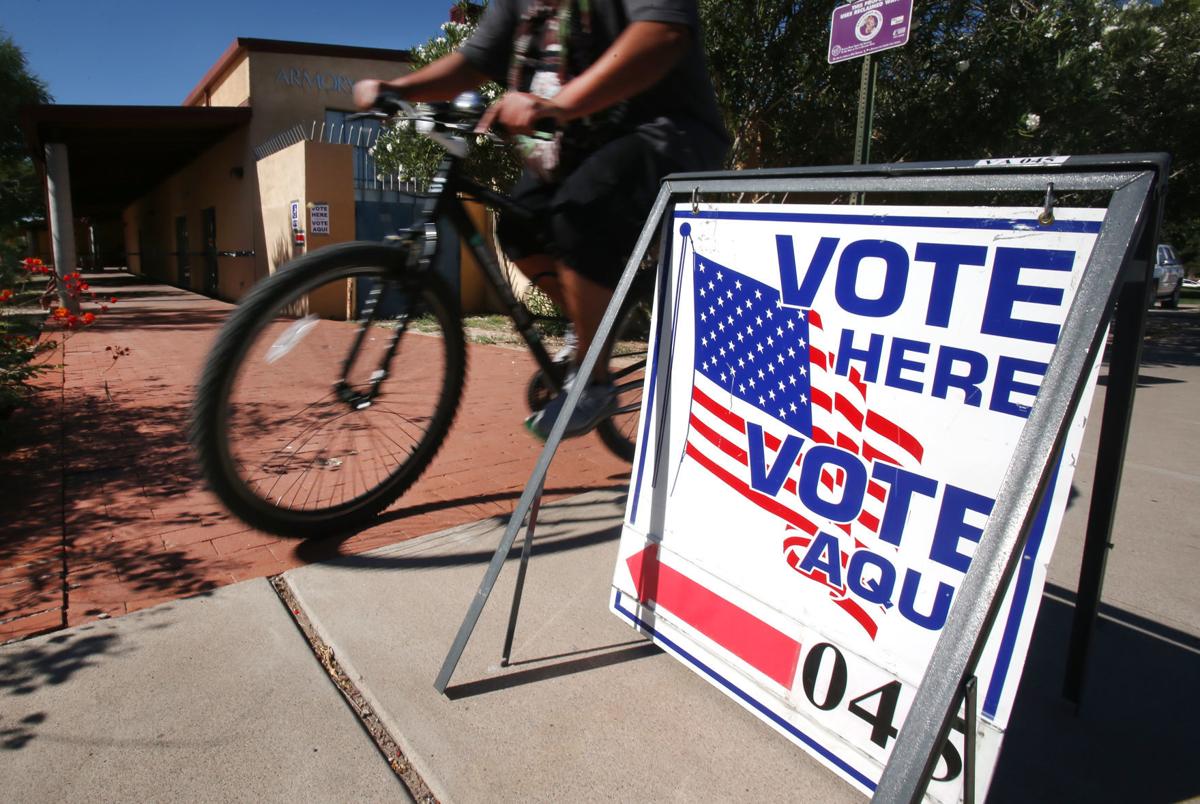PHOENIX — A federal judge has refused to order Secretary of State Michele Reagan to immediately update voter registration addresses of 384,000 Arizonans who moved since the last election.
But the ruling leaves the door open to further court action to ensure that Reagan — or whoever succeeds her — finally brings the state into compliance with federal voting laws.
Judge James Teilborg acknowledged Wednesday the system operated by the Motor Vehicle Division for address changes for driver’s licenses requires people to affirmatively “opt-in” to also having their voter information updated. And the judge did not dispute the National Voter Registration Act requires these forms to make registration changes automatic unless people opt out.
The result, according to the American Civil Liberties Union and other groups, is that many people will show up at the wrong polling place on Election Day.
But Teilborg said it would cause chaos so soon before the November election to change all of those registrations. And he’s not convinced that leaving things as they are really will disenfranchise people.
First, he said, there is no evidence that anyone is unable to update his or her voter registration.
Teilborg said there are more practical solutions to the problem than a wholesale re-registration of people.
“If a voter moved within the same county but did not update her voter registration address and appears at the precinct corresponding to her new address, the voter may cast a provisional ballot at the new precinct, update her voter address on-site, and the vote will count,” the judge wrote.
“If the individual did update her voter address, but appears at her old precinct, the individual will be directed to the correct precinct, in which the voter resides, and her vote will count,” Teilborg continued. “The only time an eligible voter’s vote will not count would be when an individual insists on voting at the wrong precinct.”
At the heart of the issue is a federal law designed to make it easier for people to register to vote.
One section says that any change of address form submitted to the state for driver’s licenses “shall serve as notification of change of address for voter registration.” Only if the person says he or she does not want to change voting address does the mandate not apply.
State election officials say they are in the process of working with the MVD to update the forms and website to comply with federal law. But none of that will be ready by November.
That did not satisfy challengers who argued that about 384,000 registered voters updated their addresses with MVD since the 2016 election and are still registered to vote at their old addresses. So the challengers, who also include the Mi Familia Voter Education Fund and Promise Arizona, asked Teilborg to direct Reagan to fix all of their addresses — and do it ahead of the general election — to ensure people are not denied the right to vote.
They also wanted Reagan to send out a notice to all those who have changed their address with MVD since the 2016 election informing them their voter registration may be out of date. That notice also would tell them they won’t get their early ballot even if they are on a list to have one sent out every election cycle.
And finally they wanted Reagan to order that all ballots of those who had changed their address with MVD but not updated their registration address be counted, even if cast at the wrong precinct.
Teilborg suggested the threat that voters would be disenfranchised was speculative at best.
He said the challengers produced no evidence that any person will attempt to vote in the wrong precinct solely because the voter’s address was not updated automatically to match an MVD address change.
On the other side of the equation, Teilborg said issuing such an order would result in “great expense” to post notices at all polling locations, retraining poll workers to count ballots of those who do not live in the precinct, and sending out hundreds of thousands of mailers that would likely confuse voters.
And there’s something else. Teilborg said the challengers said they first became aware of the violations of federal law in November 2017. Yet they waited until last month to seek an emergency order to revamp the registration process, less than three months before the general election.
ACLU attorney Sarah Brannon said Wednesday’s ruling does not dismiss the claim and said her organization’s next legal move depends on what Reagan does now.
She said Reagan has promised to finally bring the state and its voter registration link to MVD into compliance with federal law sometime next year.
“We hope the secretary will honor her commitment to fix this problem in the long run,” Brannon said. “And then we will proceed in the court as appropriate and as necessary.”





